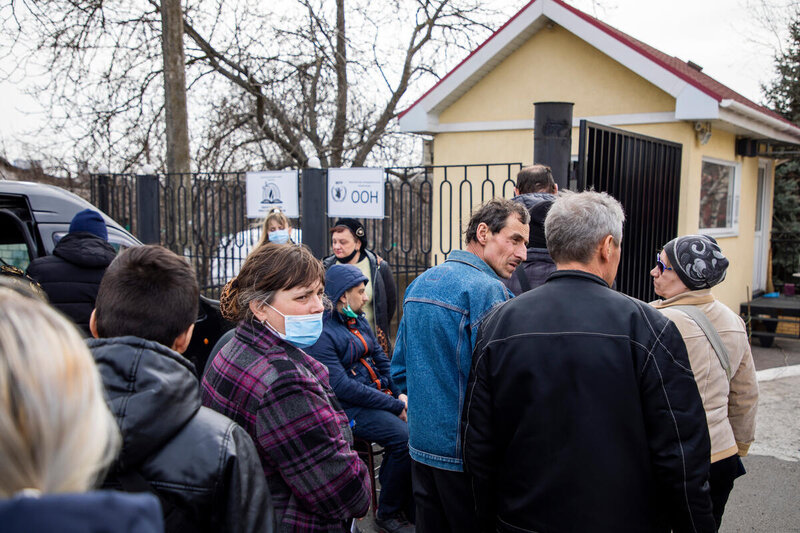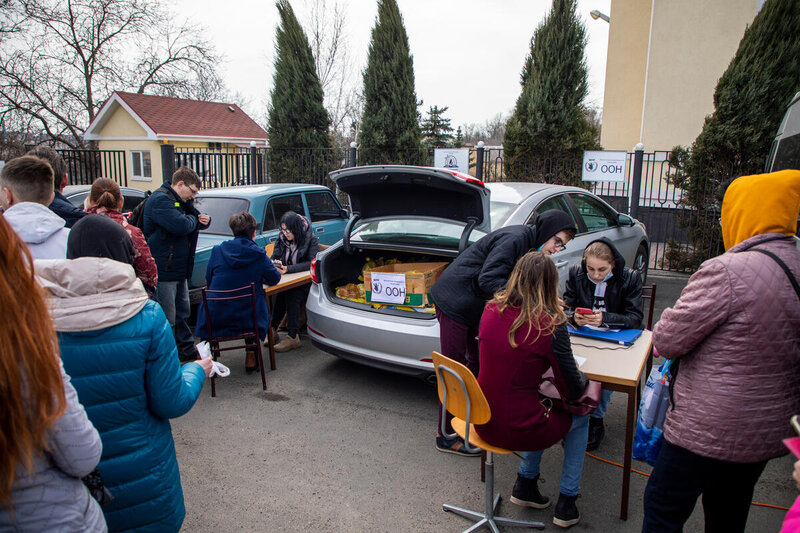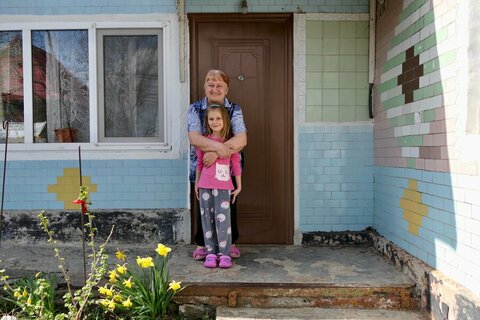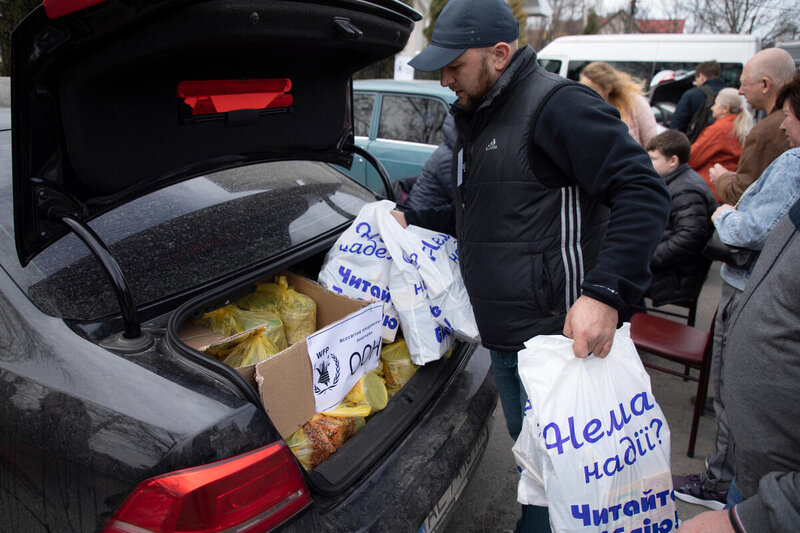WFP aims to reach up to 6 million people caught up in the conflict in Ukraine

“When we saw bombs in our square, the place where I live, where I was born, where I work, it was the minute where I understood what has happened,” says Nina, a university professor who fled Kharkiv for Dnipro in eastern Ukraine, as she struggles to hold back tears.
Nina is among 7 million people left internally displaced following the start of the war in Ukraine. A further 4.2 million Ukrainians, mostly women, children and elderly people, have sought refuge in neighbouring countries.
”It’s happened – war in our country,” she says. “And it's difficult, really, for all our citizens … it’s really difficult when you see the damage. It’s difficult when you haven't money because lots of people haven't work, they haven't money to buy. Because we haven’t money, we can’t buy food.”
The World Food Programme (WFP) is scaling up to support millions of people like Nina. It aims to reach up to 6 million people in-country in the next three months, and support 300,000 refugees and asylum seekers who have fled to neighbouring countries.
“It’s an extremely concerning situation of people that are either trapped or people that are on the move and people that are displaced,” says Margot van der Velden, WFP Director of Emergencies, speaking at a WFP-supported food distribution at a church in Dnipro.

“We are providing and seeking access and we need unfettered and unconditional access to the people that are trapped in the towns…humanitarian access, to be able to provide food.”
WFP has pre-positioned close to 40,000 tons of bulk food, wheat flour and food rations in Ukraine and neighbouring countries for distribution in the coming days.
Despite the volatile security situation, WFP has provided food to vulnerable families in the encircled cities of Kharkiv and Sumy, through two interagency humanitarian convoys that have reached the conflict-hit areas.
Host families in Moldova forge bonds with refugees

At the same time, it has distributed over 330,000 loaves of freshly baked bread to families in Kharkiv and is expanding the bakery initiative to other cities, aiming to deliver another 990,000 loaves in the coming weeks.
WFP worked rapidly to set up its operation in Ukraine, having not been based in the country since April 2018.
“Just one month ago, we had no presence on the ground, no staff, no network of suppliers or partners. To build an operation from the ground up and get food to one million people seemed a monumental challenge,” said Jakob Kern, WFP’s Emergency Coordinator for Ukraine. “Now that the structures are in place, we need the funding to keep delivering assistance, and to help 3 million people in need.”
“The first challenge was the fact that we didn’t have any office presence for an emergency operation,” says Samir Wanmali, Deputy Director of WFP’s Programme and Policy Division.
“We had to set up an office from scratch, then it was trying to find partners, partners who would be able to receive WFP food assistance and then distribute target the most vulnerable and distribute at a scale that we haven't seen here in the past as WFP.”
Among people the organization is assisting in Dnipro are 4,000 members of the Roma community, a group who have always been marginalized, says Wanmali.

“People are stuck in the town. We have a lot of problems to get access to the people that are left in the towns, but also people that also had to flee the towns and are living in the rural areas around the embattled towns,” says van der Velden. “And then also people that are coming to Dnipro, for example, and that are hiding, having to stay here all want to move on.”
Despite the horrors of the past month, Nina retains hope of a better future: “I hope that this war will stop in a few, maybe weeks. And I want to say, we all need to be more caring for each other.
“Stop war in our world, in our country, because it's difficult. Our parents, our children haven't houses and or when we will have ability to reconstruct it? It's the only question for today.”
This story was updated with latest figures on 13 April 2022
Interviews by Viktor Pesenti. Written by Peyvand Khorsandi and Paul Anthem
